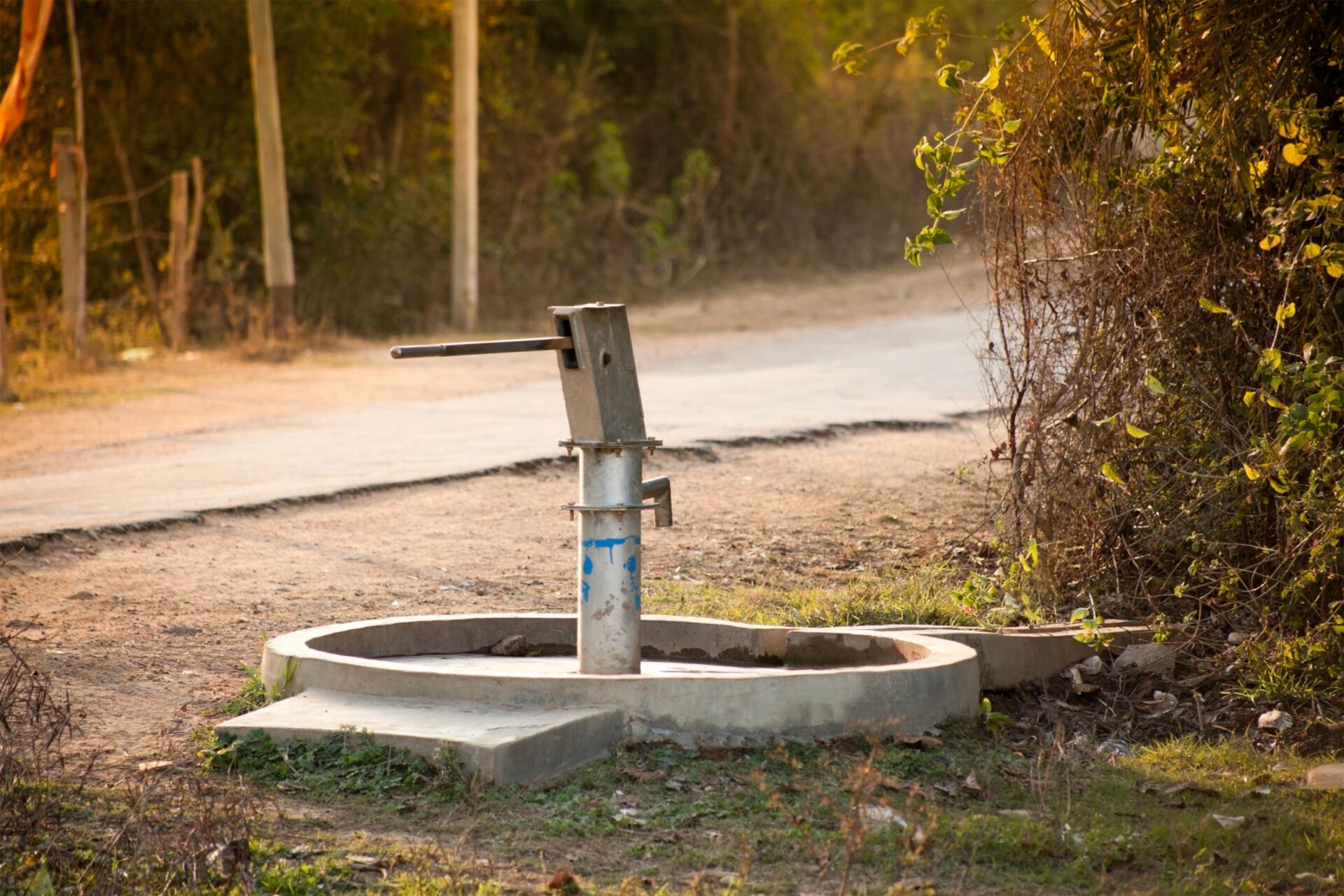Maintaining a healthy irrigation system is crucial for keeping your landscape lush and thriving, and that starts with ensuring your irrigation well is in top condition. Over time, even the best systems can encounter issues, such as low water pressure, contamination, or pump malfunctions.
When these problems arise, quick and effective irrigation well repair becomes essential to prevent costly damage and water waste. Whether you’re dealing with a drop in performance or a complete system breakdown, addressing the issue promptly can restore your well’s efficiency and ensure your plants get the water they need.
Let’s explore common irrigation well problems and the best repair solutions to keep your irrigation system running smoothly. Let’s dive in and get your system back to peak performance!
What are the common signs that an irrigation well needs repair?
Common signs that an irrigation well needs repair include:
- Reduced Water Flow: A noticeable decrease in water flow or pressure from your irrigation system can indicate problems with the well pump, pipes, or filters. This issue can affect the efficiency of your irrigation.
- Inconsistent Water Supply: If you experience irregular water supply, such as intermittent flow or periods of no water, may signal issues with the well’s pump or its components.
- Strange Noises: Unusual noises, such as grinding, banging, or sputtering sounds coming from the well or pump, can indicate mechanical problems or damage that requires attention.
- Increased Energy Bills: A sudden spike in your energy bills might suggest that the well pump is working harder than usual, possibly due to inefficiencies or malfunctions.
- Discolored or Contaminated Water: If the water from your well appears discolored, has a strange odor, or shows signs of contamination, it may indicate problems with the well casing or filtration system.
- Frequent Pump Cycling: If the well pump turns on and off frequently, it could indicate issues with the pressure tank, pressure switch, or other components of the irrigation system.
- Water Quality Issues: Changes in water quality, such as unusual taste, smell, or sediment, can suggest problems with the well’s filtration or contamination of the water source.
- Visible Wear and Tear: Inspecting the well and surrounding equipment for visible signs of damage or wear, such as rusted parts or leaking pipes, can help identify issues that need repair.
- Dry Spots in Irrigated Areas: If you notice dry spots or uneven watering in areas that should receive consistent irrigation, it could indicate problems with the well’s ability to supply adequate water.
- Unusual Well Performance: Any significant changes in the well’s performance or behavior, such as slower recovery times or difficulty maintaining pressure, may require professional evaluation.
If you observe any of these signs, you must contact a professional for a thorough inspection and timely repair to ensure your irrigation system operates efficiently and effectively.
How can irrigation well repair improve the efficiency of my irrigation system?
Irrigation well repair can significantly improve the efficiency of your irrigation system in several key ways:
- Restores Optimal Water Flow: Repairs ensure that the well pump and associated components are functioning correctly, restoring adequate water flow and pressure. This helps maintain consistent irrigation coverage across your landscape, preventing dry spots and ensuring even watering.
- Enhances Water Pressure: Fixing issues like pump malfunctions or clogged filters can improve water pressure, allowing your irrigation system to distribute water more effectively—better pressure results in more efficient operation and healthier plants.
- Reduces Energy Consumption: Efficiently running pumps and well systems consume less energy. By addressing mechanical problems or inefficiencies, repairs can lower energy usage and reduce utility costs associated with running your irrigation system.
- Prevents Water Waste: Properly functioning wells and irrigation systems minimize water waste by delivering water precisely where needed. This reduces runoff and over-watering, contributing to water conservation efforts and more sustainable irrigation practices.
- Extends System Lifespan: Regular maintenance and timely repairs help prevent major breakdowns and extend the lifespan of your irrigation well and system components. This reduces the need for costly replacements and ensures long-term reliability.
- Improves System Reliability: Addressing and fixing issues promptly increases the overall reliability of your irrigation system. You can trust that the system will perform as expected, providing consistent watering and reducing the risk of system failures.
- Maintains Water Quality: Repairing or replacing damaged filters, casings, or other components ensures that water quality remains high, preventing contaminants from affecting your irrigation system and the plants it waters.
- Reduces Downtime: Efficient repairs minimize downtime and disruptions to your irrigation schedule. Quick resolutions to issues keep your system running smoothly, ensuring your landscape receives timely and adequate watering.
By addressing any problems with your irrigation well, you enhance the efficiency of your irrigation system, promote healthier plant growth, and achieve more effective water management.
What are the most common issues that affect irrigation well performance?
The most common issues that affect irrigation well performance include:
- Pump Malfunctions: Problems with the well pump, such as mechanical failures or electrical issues, can lead to reduced water flow or pressure. Common pump issues include worn-out bearings, impeller damage, or motor failure.
- Clogged Filters: Filters in the well system can become clogged with sediment or debris, restricting water flow and reducing the system’s efficiency. Regular maintenance and cleaning are necessary to prevent this issue.
- Low Water Levels: Seasonal changes or over-extraction can cause the water table to drop, leading to insufficient water supply for irrigation. This issue may require adjustments to the pump or well system.
- Piping Problems: Leaks, cracks, or blockages in the well’s piping can result in reduced water flow and pressure. Damaged pipes need prompt repair or replacement to restore proper function.
- Pressure Tank Issues: A malfunctioning pressure tank can lead to inconsistent water pressure or frequent pump cycling. Common problems include a damaged bladder or faulty pressure switch.
- Contamination: Contaminants entering the well, such as chemicals, microorganisms, or debris, can affect water quality and system performance. Regular testing and proper well maintenance are essential to prevent contamination.
- Worn-Out Components: Over time, components such as casings, seals, and bearings can wear out and affect performance. Timely repairs or replacements are necessary to maintain optimal function.
- Electrical Problems: Issues with electrical wiring, connections, or controls can disrupt the operation of the well pump and other components. Electrical problems require professional diagnosis and repair.
- Sediment Buildup: Sediment accumulation in the well can reduce water flow and cause clogging. Periodic cleaning and maintenance help prevent sediment-related issues.
- Overuse or Misuse: Excessive use or improper operation of the irrigation system can strain the well and its components, leading to performance issues. Proper usage and adherence to recommended guidelines help avoid these problems.
Addressing these common issues promptly and performing regular maintenance can help ensure that your irrigation well operates efficiently and effectively, providing a reliable water supply for your landscape.
How much does irrigation well repair typically cost, and how long does it take?
Based on the issue, complexity, and geography, irrigation well repair costs and duration might vary greatly. Irrigation well upkeep costs $150–$500 on average. These include clogged filter replacement, leak repair, and pump maintenance. Replacing a well pump, repairing or installing new pipes, or addressing water quality issues can cost $500 to $2,000.
A broken pump might cost $800 to $1,500 to replace, depending on its size and kind. Replacing or repairing well casings or large piping sections can be expensive. Water quality issues needing further filtration or treatments may increase costs.
Minor repairs usually take a few hours to a half-day. More complex repairs may take a day or more, especially if many components need replacement or the well needs cleaning and testing.
Before starting repairs, get a professional estimate and schedule. This lets you comprehend the scope of work and make informed fixes and cost selections. Regular maintenance and fast repairs prevent costly issues and preserve your irrigation system’s efficiency and reliability.
Revive Your Well—Call for Repairs!
Revive your well—call for repairs today with Well Doctor LLC! Our expert team specializes in diagnosing and fixing issues with your irrigation well to ensure it operates at peak performance. From addressing pump malfunctions and clogged filters to repairing leaks and improving water quality, we provide comprehensive solutions tailored to your needs.
We understand the importance of a reliable irrigation system for maintaining a healthy landscape and are committed to delivering prompt, efficient, and effective repairs. Don’t let well problems disrupt your irrigation system. Contact Well Doctor LLC now to schedule your repair and restore optimal function to your well.

